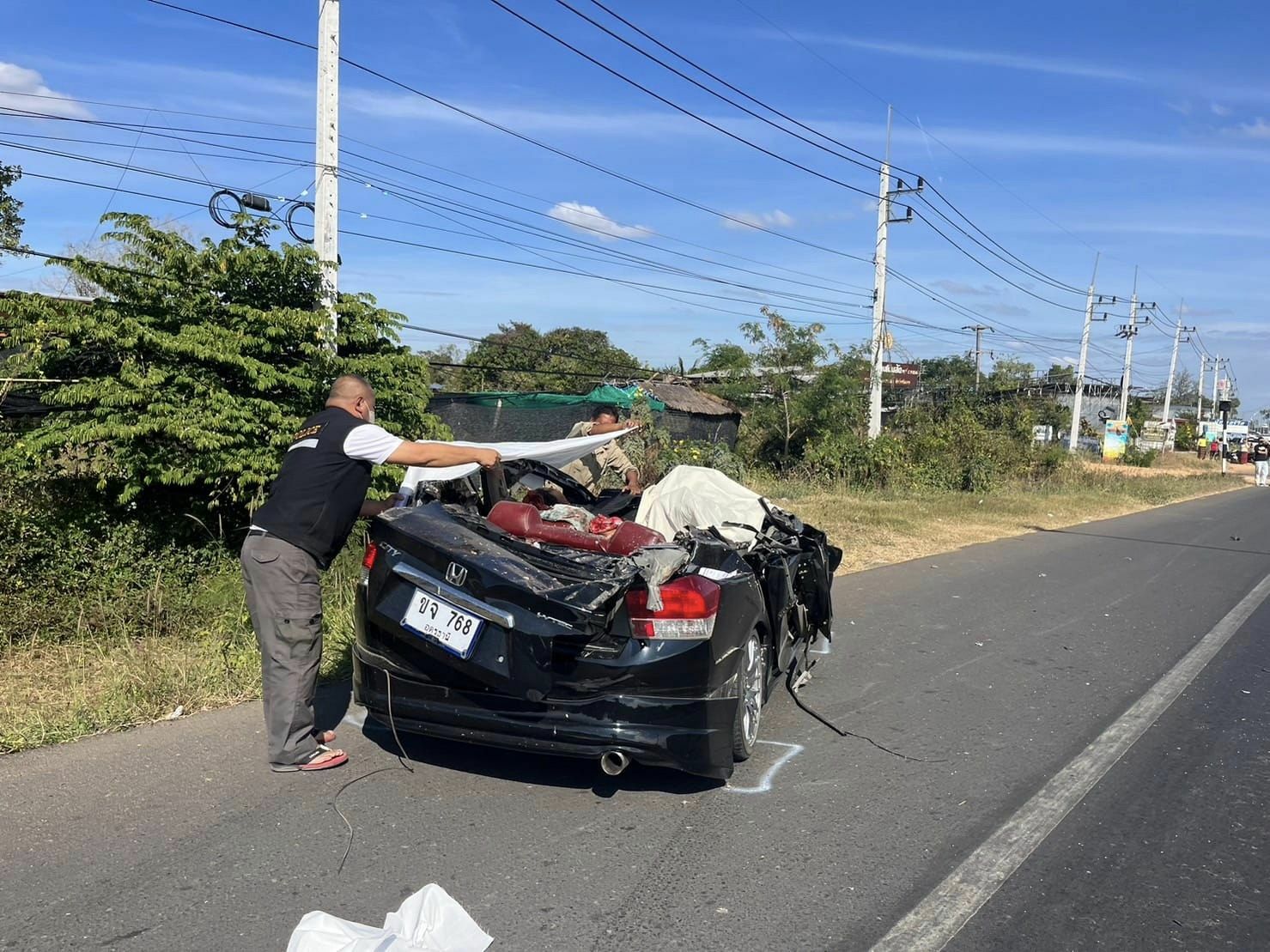Blood alcohol content limit for drivers in Thailand should be set at 0%

The Centre for Alcohol Studies (CAS) urged relevant departments to consider setting the blood alcohol content (BAC) limit for drivers in Thailand at 0%, instead of 0.05%, because drivers with 0.05% of BAC in their system still cause fatal road accidents.
The legal BAC is set at 0.05% in Thailand. This means that motorists in the country can drive if their BAC is less than 0.05%, or 50 milligrammes of alcohol in 100 millilitres of blood. This is the equivalent of two glasses of wine or beer.
The vice president of the CAS, Ponthep Wijitkunakorn, used a recent fatal road accident that killed five victims in the Isaan province of Sisaket to emphasise why the legal limit for a driver’s blood alcohol level needed to be changed.
The driver, 30 year old Likit Tarut, crashed his sedan into a motorcycle and then ran across the traffic island and hit another black sedan car. The motorcycle rider, the driver of the black sedan, and four passengers were all pronounced dead at the scene. Likit was tested, and his alcohol blood level was below 0.05%.
Ponthep pointed out that a driver with a BAC lower than 0.05% could still cause a serious road accident, so the BAC standard might not be suitable. Ponthep added that the percentage did not meet the recommendation from the World Health Organization (WHO) either.
Ponthep suggested that Thailand should change the standard BAC to 0% according to the WHO’s suggestion. He said 15 countries all over the world set BAC at 0, and about 27 countries set BAC at a very low percentage of 0.03%.
Ponthep also recommended that Thailand sets up a permanent checkpoint to estimate the BAC in the blood of random drivers with a breathalyser device.
An expert in medicine and public health from the Alcoholic Beverage Control Committee, Kamnuan Ungchusak, agreed with Ponthep and said that Thailand should take drunk driving more seriously. The death toll from road accidents would be reduced by up to 5,000 people per year if the government agreed to change the limit.
Latest Thailand News
Follow The Thaiger on Google News:


























